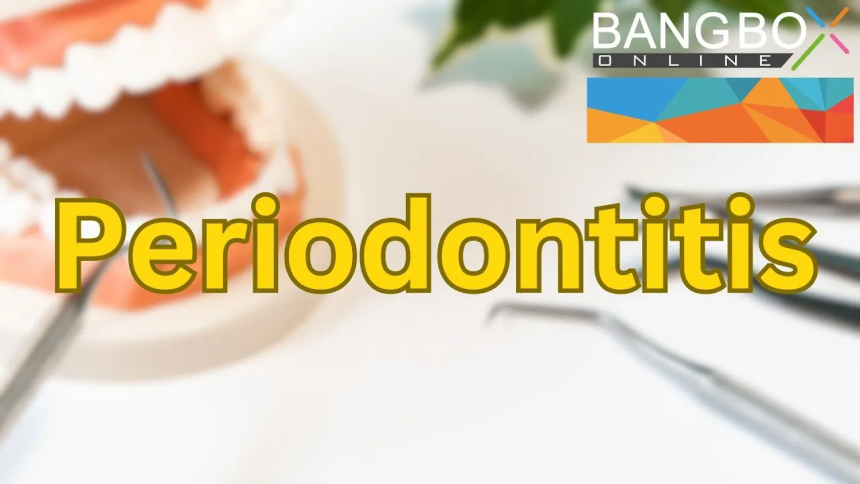
Periodontitis: A Gum Infection
2023-07-17 08:08:43 - Bang Box Online
Periodontitis is a severe gum infection that affects the tissues surrounding and supporting the teeth, including the gums, periodontal ligaments, and alveolar bone. It is a more advanced stage of gum disease compared to gingivitis, which is a milder form of gum inflammation. If left untreated, periodontitis can lead to tooth loss and may even have systemic health implications.
Causes:
Periodontitis primarily arises from the buildup of plaque, a sticky film of bacteria that forms on the teeth and gums. When plaque is not effectively removed through proper oral hygiene practices such as brushing and flossing, it hardens into tartar (calculus) at the gum line. The bacteria in plaque and tartar trigger an inflammatory response in the gum tissues, leading to infection and the gradual breakdown of the supporting structures of the teeth.
Symptoms:
The symptoms of periodontitis may include:
- Persistent bad breath (halitosis)
- Swollen, red, or tender gums
- Bleeding gums, especially during brushing or flossing
- Receding gums, making the teeth appear longer
- Formation of deep pockets between the teeth and gums
- Loose or shifting teeth
- Changes in the way teeth fit together when biting
- Pus around the gums and between teeth
- Gum abscesses (painful, pus-filled swellings)
Stages of Periodontitis:
Periodontitis can be classified into different stages based on the severity of the disease and the extent of damage to the supporting tissues:
- Early periodontitis: Characterized by mild gum pocket formation and initial bone loss.
- Moderate periodontitis: Increased pocket depth and more significant bone loss, leading to teeth becoming loose.
- Advanced periodontitis: Severe pocket formation, extensive bone loss, and significant mobility of teeth, potentially leading to tooth loss.
Treatment:
Early diagnosis and timely treatment are essential in managing periodontitis. The primary goal of treatment is to control the infection and halt the progression of the disease. The treatment options may include:
- Scaling and root planing: A deep cleaning procedure to remove plaque, tartar, and bacteria from above and below the gumline.
- Antibiotics: Topical or oral antibiotics may be prescribed to target and control the bacterial infection.
- Periodontal surgery: In advanced cases, surgical procedures may be necessary to access and clean deeply affected areas and to regenerate lost bone and gum tissue.
- Maintenance therapy: Regular follow-up visits with a dentist or periodontist to monitor and manage the condition after treatment.
Prevention:
Prevention is key to avoiding periodontitis. Good oral hygiene practices, including regular brushing, flossing, and routine dental check-ups, can help maintain healthy gums. Avoiding tobacco use and maintaining a balanced diet can also contribute to gum health.
In conclusion, periodontitis is a serious gum infection that requires timely intervention to prevent tooth loss and protect overall oral health. Regular dental visits and proactive oral hygiene habits are vital in its prevention and early detection. If you suspect you may have periodontal problems, seeking professional dental care is crucial for proper diagnosis and treatment.
Follow us on:
Platform: https://www.bangboxonline.com/
Facebook: https://www.facebook.com/bangboxonline/

